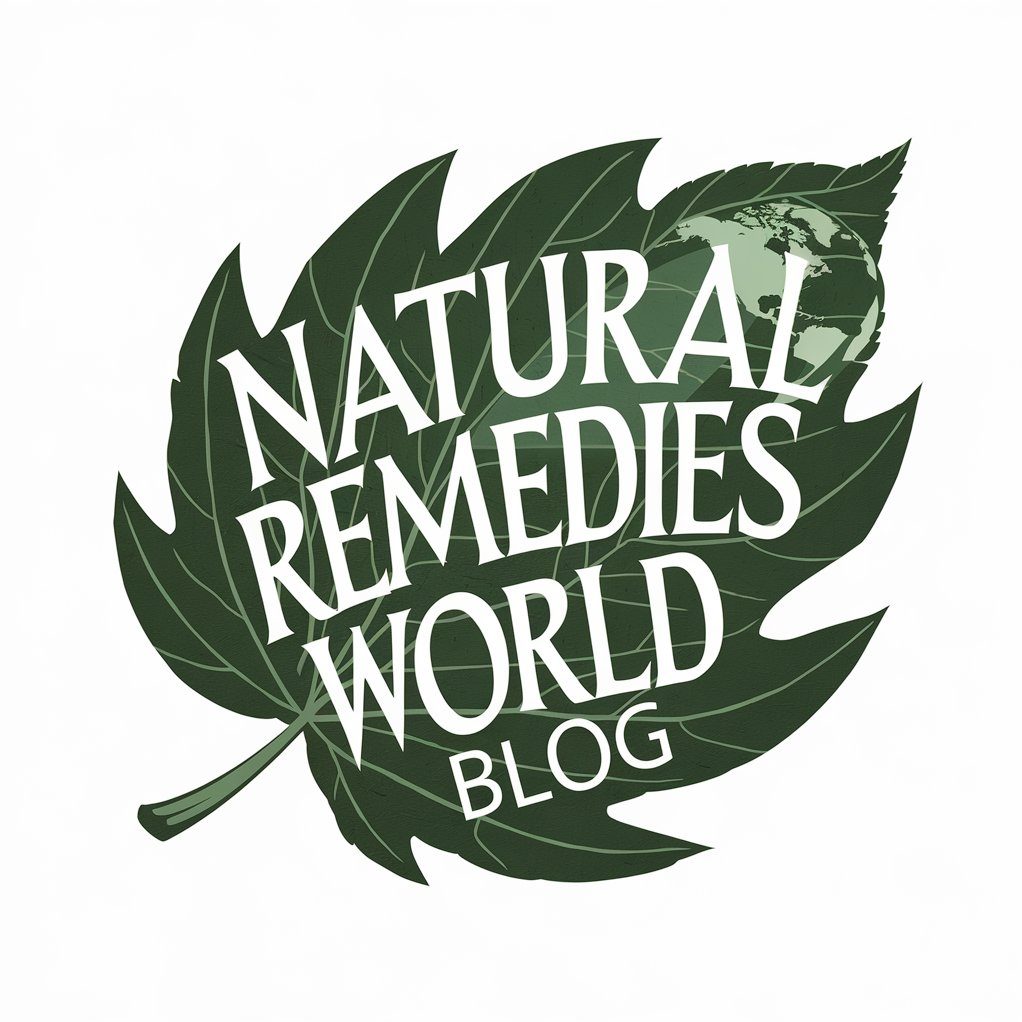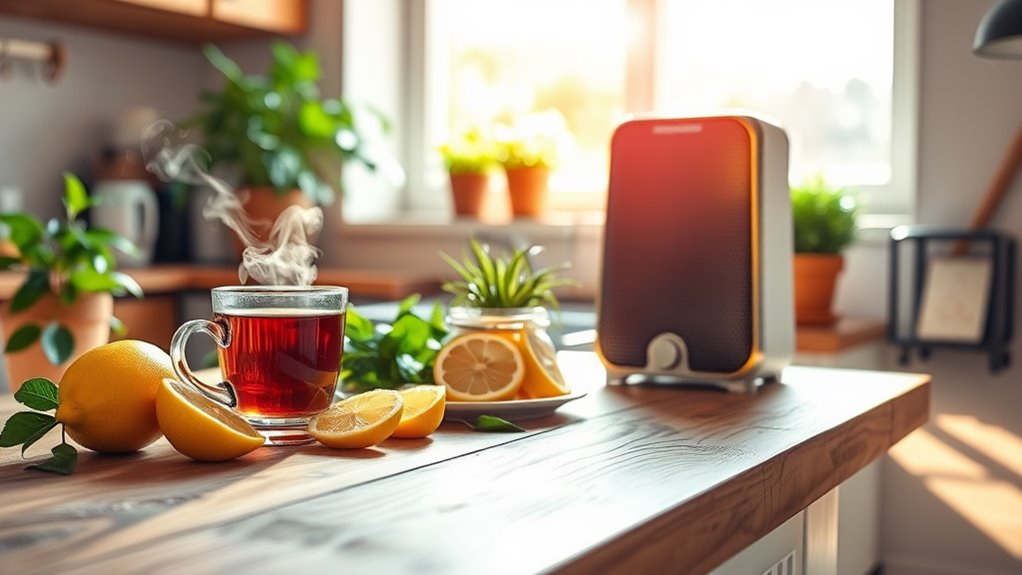You can easily conquer seasonal allergies and enjoy the outdoors again with these five practical hacks. Start by optimizing your indoor environment—keep windows shut and use HEPA filters for cleaner air. Incorporate natural remedies like local honey or saline rinses for relief. Adjust your diet by adding anti-inflammatory foods and staying hydrated. Keep an eye on pollen levels so you can plan your outdoor activities wisely. Lastly, establish regular cleaning habits to minimize allergens at home. With these tips in hand, you're on the right path to relief, and there's more you might want to explore!
Optimize Your Indoor Environment
Since seasonal allergies can be triggered by indoor allergens just as much as outdoor ones, optimizing your indoor environment is crucial for relief.
Start by keeping windows closed during high pollen seasons to prevent allergens from entering. Invest in high-efficiency particulate air (HEPA) filters for your home's air system, as they trap tiny particles that can aggravate your symptoms.
Regularly vacuum with a HEPA vacuum and wash bedding in hot water to eliminate dust mites and pet dander. Consider using an air purifier in your bedroom for added protection while you sleep.
Finally, declutter your living spaces to minimize dust accumulation, making it easier to breathe and enjoy your indoor environment.
Taking these steps can significantly reduce your allergy symptoms.
Incorporate Natural Remedies
While conventional medications can offer relief, incorporating natural remedies into your routine can further alleviate seasonal allergy symptoms.
Consider using local honey; it may help your body build immunity to local pollen. Essential oils like eucalyptus can also provide respiratory relief when diffused or inhaled.
Drinking herbal teas, especially peppermint or ginger, can soothe your throat and reduce inflammation. Another option is a saline nasal rinse, which helps clear allergens from your nasal passages.
Lastly, try adding a daily dose of vitamin C, known for its antihistamine properties. These natural remedies can complement your conventional treatments, helping you breathe easier and enjoy your days without the constant struggle of allergies.
Adjust Your Diet
Adjusting your diet can significantly impact how you manage seasonal allergies. Incorporate foods rich in omega-3 fatty acids, like salmon and walnuts, to help reduce inflammation in your body.
Fruits and vegetables high in antioxidants, such as berries and leafy greens, can also support your immune system and combat allergy symptoms. Quercetin-rich foods, like onions and apples, act as natural antihistamines, so be sure to include them in your meals.
Additionally, consider reducing dairy and processed foods, which may exacerbate mucus production. Staying hydrated is crucial, so drink plenty of water to help flush out allergens.
Stay Informed About Pollen Levels
How can staying informed about pollen levels transform your allergy management? By knowing the daily pollen forecast, you can plan outdoor activities to minimize your exposure. Check local weather apps or websites that provide pollen counts, focusing on the types of pollen that affect you most.
Here's a quick reference table for common pollen types:
| Pollen Type | Peak Season |
|---|---|
| Tree Pollen | March – May |
| Grass Pollen | May – July |
| Weed Pollen | August – October |
| Ragweed Pollen | Late Summer – Fall |
| Mold Spores | Spring and Fall |
Being proactive about pollen levels helps you enjoy the outdoors while keeping your allergies in check.
Practice Regular Cleaning Habits
Staying on top of pollen levels is just one piece of the puzzle when it comes to managing seasonal allergies. Practicing regular cleaning habits is equally important.
Start by vacuuming your home at least once a week using a vacuum with a HEPA filter to trap allergens effectively. Don't forget to dust surfaces with a damp cloth to prevent particles from becoming airborne.
Wash your bedding and curtains in hot water every couple of weeks to eliminate dust mites and pollen. If you have pets, bathe them regularly to reduce dander.
Lastly, consider using an air purifier to help filter allergens in your living spaces. By keeping your environment clean, you'll significantly reduce allergy triggers and breathe easier.
Frequently Asked Questions
Can Pets Contribute to Indoor Allergens During Allergy Season?
Yes, pets can contribute to indoor allergens during allergy season. Their fur, dander, and saliva can trigger reactions. Regular grooming and cleaning your home can help reduce these allergens and improve your indoor air quality.
How Do I Choose the Right Air Purifier for Allergies?
To choose the right air purifier for allergies, look for HEPA filters, consider your room size, check the Clean Air Delivery Rate, and ensure it's quiet enough for your comfort. Don't forget maintenance requirements!
Are There Specific Vitamins That Help Reduce Allergy Symptoms?
Certain vitamins, like vitamin C and vitamin D, can help reduce allergy symptoms. Incorporating these into your diet may boost your immune response, making it easier for you to manage those pesky allergy triggers effectively.
What Are the Best Times to Go Outside During Allergy Season?
During allergy season, it's best to go outside in the late afternoon or after rain. Pollen counts drop then, making your outdoor experience more enjoyable and minimizing the chance of triggering your allergy symptoms.
How Can Stress Impact Seasonal Allergies and Their Symptoms?
Stress can worsen your seasonal allergies and symptoms by triggering inflammation and immune responses. When you're stressed, your body produces more histamines, making you feel more congested and uncomfortable. Managing stress can help alleviate these effects.


